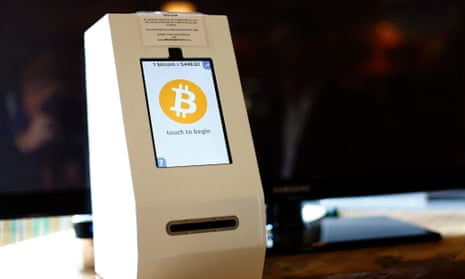A new Bitcoin bank called Circle opens its doors to the public on Monday, following a stealth development period which saw it raise $25m from some of Silicon Valley’s biggest venture capitalists.
The service, which launches its web app worldwide on Monday and promises to follow-up with Android and iOS apps in the near-future, is one of the most aggressive attempts so far to take Bitcoin payments mainstream.
Founded by Macromedia alum Jeremy Allaire and long-running collaborator Sean Neville, Circle’s offering is, on the surface little different from a number of other Bitcoin “wallet” services, such as those provided by competitors such as Blockchain or Coinbase. Users can transfer cash in using a bank account or debit card, which is then converted into bitcoin by Circle; and they can spend their bitcoins online or in physical shops with ease.
But Circle is trying to compete with those competitors by offering a level of professionalism unusual in the bitcoin world. For a start, every user’s deposits are fully insured, putting paid to fears of a collapse similar to that at outfits such as notorious exchange Mt Gox. And its slick interface, which abstracts away much of the confusing technical aspects of the crypto-currency, appeals to users tired of conventional internet banking as much as it does those already involved in Bitcoin.
From Monday, “anyone can enrol, and they need to go through very basic security set-up and verification,” Allaire told the Guardian. “Once they do that, they really have a cloud wallet: a service where they can send, receive and store Bitcoin very easily with a very simple interface in their own language.
“The benefit is going to be for people who want to use an online service, and don’t want to worry about managing and securing private keys and so forth. They can store as much as they want, there’s no fees, and it includes all the offline storage we provide as well as full insurance on all deposits.”
The promise of no fees, as well as the ease with which anyone can open an account and deposit cash into bitcoin, reveals Allaire’s longer-term goal for Circle: to provide genuine competition to the legacy banking model, proving bitcoin services to the underbanked, as well as those underserved by existing banks.
Also square within the firm’s sights are companies such as PayPal, which enable transactions between individuals as well as from users to merchants: “We’re firmly focused on consumers,” he says. “We’re very interested in how bitcoin is used for person to person payments, and we see our apps making that very instant, very secure and no fee for people.”
But while Circle is going after PayPal, the latter isn’t resting on its laurels. The company, which already accepts bitcoin payments through its Braintree subsidiary, has also announced that it will partner with bitcoin processors BitPay, Coinbase and GoCoin, to let its customers take bitcoin as payment for digital goods.
While those moves make it easier to take bitcoin from those already in the ecosystem, however, they do little to grow the market larger. That’s something Circle, and the other companies sure to follow it as the second wave of bitcoin firms take off, will have to do for itself.
- http://www.theguardian.com/news/video/2014/apr/30/bitcoin-made-simple-video-animation

Comments (…)
Sign in or create your Guardian account to join the discussion